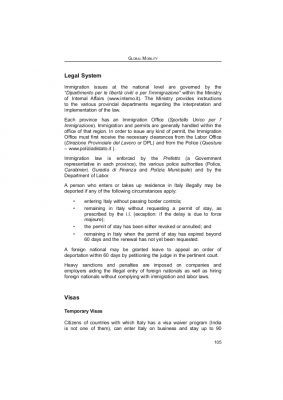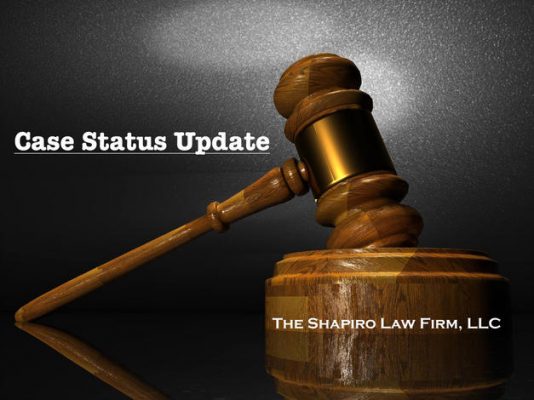Below is a list of legal terms which are most important to the labor law.
Law Against Employment Discrimination by Age (Age Discrimination in Employment Act, ADEA). Federal law protects employees over a certain age against discrimination in employment on the basis of age.
Americans with Disabilities act (Americans with Disabilities Act, ADA). Federal law that protects employees from discrimination on the basis of disability and requires employers to provide employees with a disability “reasonable adjustments”.
At-will employment. Type of employment relationship in which there is no contractual agreement and either party may terminate that relationship at any time, for any reason or for no reason in particular, without there being a sanction.
Retroactive payment. Type of compensation by damages in a demand for labor that represents the amount of money that the employee would have earned if it had not been terminated or he had not been denied promotion in an unlawful manner.
Plan type “cafe”. Kind of benefits plan type “café” in which the employee selects benefits from a menu up to a specific dollar amount.
Act Consolidated Omnibus Budget Reconciliation (Consolidated Omnibus Budget Reconciliation Act (COBRA). Federal law that requires employers to allow employees to continue their health insurance coverage after the termination of the employment relationship, in the same group insurance, with the same rate group and the same benefits.
Comparable value. Legal concept according to which people who work in similar positions and that, according to the employer, are of similar value should receive a remuneration equal, regardless of the sex of the person.
Constructive discharge. A way to terminate the employment relationship in which the employee resigns, but the employer is liable, as if it had been an unfair dismissal, because the employee was forced to resign due to intolerable working conditions.
Employee assistance program (employee assistance program, EAP). Program offered by the employer in the workplace to help employees recover from addiction to drugs or alcohol, emotional problems, work pressure, marital problems, or labor disputes.
Stock purchase Plan for employees (employee stock ownership plan, ESOP”). The benefit provided by the employer that allows employees to buy shares in the company under certain favorable terms.
Commission for Equality of Opportunities in Employment (Equal Employment Opportunity Commission, EEOC). Federal administrative agency that enforces the laws that prohibit employment discrimination.
Equal Pay act. Federal law that requires employers to equal pay to all employees doing the same work, regardless of sex.
Law of Family and Medical leave (Family and Medical Leave Act, FMLA). Federal law that requires certain employers to give time off to employees so they can take care of them when they are sick or to care for a sick family member, or to care for a newborn child or adopted.
Payment in advance. Type of compensation by damages in a demand for labor that represents the amount of money that the employee would have earned if he had been reinstated, or hired for the position of the highest wages that are denied in an illegal manner.
Garnishment of wages. Taking or seizing the amount of money that is owed by the child support, or other court order, directly from the employee’s salary.
Hostile work environment. Work environment which is dominated by the harassment or similar conduct unwelcome, which interferes with a person’s ability to perform her job and that it violates the anti-discrimination laws.
Individual retirement account (individual retirement account, IRA). Savings account tax-deferred in that the employee contribution does not exceed the maximum amount established per year.
An implicit contract. Type of enforceable contract that is not set explicitly, but is implied from the circumstances or from the conduct of the parties.
Minimum wage. Minimum fee for a fixed time that employers in certain industries must pay employees, in accordance with the law.
Attenuation. Action on the part of an employee which will reduce the proportion of damage caused in the wake of a labor practice is illegal, as, for example, to obtain new employment after a wrongful termination.
Discrimination by nationality. Discrimination on the basis of the ethnicity of an employee.
Agreement of non-competition. Contract (or part of a contract) by which an employee agrees not to work for competitors of their employer (or to establish a business that works as your competition) while working for this or for a certain time after the end of their employment relationship.
Occupational disease. Disease that is contracted due to working conditions, such as the “lung disease mining” to get the miners.
Administration of Occupational Safety and Health (Occupational Safety and Health Administration, OSHA). Federal agency in charge of developing and enforcing standards of health and safety in the workplace.
Remuneration for overtime. Rate of pay (usually 1.5 or 2 times the normal hourly rate) an employer is obliged to pay employees who work more than a certain number of hours per day or per week.
Sexual harassment. The harassment “quid pro quo” consists of unwelcome sexual advances by an employer or supervisor who conditions the obtaining of employment to the employee, or who represents a threat to the continuation of the employee’s work. A complaint of harassment in a “hostile work environment” can occur when there are photographs, jokes, threats, or overall atmosphere that is demeaning so widespread that build a work environment that is intimidating and offensive.
Social security. Federal program of payments for retirement or disability created by the imposition of taxes on the income of employees.
Options on shares. Type of retirement plan by which employees have the opportunity to buy shares in the company for which they work.
Work at a distance. Work from home or from another remote location of the office through the use of technology such as phones and computers.
Title VII. Part of the Civil Rights Act of 1964, which prohibits discrimination in the field employment on the basis of age, color, national origin, race, religion, or sex.
Tuition reimbursement. Benefit of employment by which the employer pays the total or part of the tuition of a course or training to the employee.
Informant. A term that refers to an employee’s “complaint” to an employer, that is to say, that informs the authorities about the actions or illegal practices of an employer. The respondents have a right of access to various protections under state and federal law.
How To Obtain Legal Assistance
Employees have many rights in the workplace. If you have additional questions in their best interest may be to contact a lawyer who specializes in employment law, who will explain your options and protect your legal rights.










